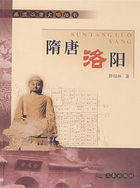After my interview with Xanthippe, I hesitated to approach the type-writer for a week or two. It did a great deal of clicking after the midnight hour had struck, and I was consumed with curiosity to know what was going on, but I did not wish to meet Mrs. Socrates again, so I held aloof until Boswell should have served his sentence. I was no longer afraid of the woman, but I do fear the good fellow of the weaker sex, and I deemed it just as well to keep out of any and all disputes that might arise from a casual conversation with a creature of that sort. An agreement with a real good fellow, even when it ends in a row, is more or less diverting; but a disputation with a female good fellow places a man at a disadvantage. The argumentum ad hominem is not an easy thing with men, but with women it is impossible. Hence, I let the type-writer click and ring for a fortnight.
Finally, to my relief, I recognized Boswell's touch upon the keys and sauntered up to the side of the machine.
"Is this Boswell--Jim Boswell?" I inquired.
"All that's left of him," was the answer. "How have you been?"
"Very well," said I. And then it seemed to me that tact required that I should not seem to know that he had been in the superheated jail of the Stygian country. So I observed, "You've been off on a vacation, eh?"
"How do you know that?" was the immediate response.
"Well," I put in, "you've been absent for a fortnight, and you look more or less--ah--burned."
"Yes, I am," replied the deceitful editor. "Very much burned, in fact. I've been--er--I've been playing golf with a friend down in Cimmeria."
"I envy you," I observed, with an inward chuckle.
"You wouldn't if you knew the links," replied Boswell, sadly. "They're awfully hard. I don't know any harder course than the Cimmerian."
And then I became conscious of a mistrustful gaze fastened upon me.
"See here," clicked the machine. "I thought I was invisible to you? If so, how do you know I look burned?"
I was cornered, and there was only one way out of it, and that was by telling the truth. "Well, you are invisible, old chap,"
I said. "The fact is, I've been told of your trouble, and I know what you have undergone."
"And who told you?" queried Boswell.
"Your successor on the Gazette, Madame Socrates, nee Xanthippe,"
I replied.
"Oh, that woman--that woman!" moaned Boswell, through the medium of the keys. "Has she been here, using this machine too? Why didn't you stop her before she ruined me completely?"
"Ruined you?" I cried.
"Well, next thing to it," replied Boswell. "She's run my paper so far into the ground that it will take an almighty powerful grip to pull it out again. Why, my dear boy, when I went to--to the ovens, I had a circulation of a million, and when I came back that woman had brought it down to eight copies, seven of which have already been returned. All in ten days, too."
"How do you account for it?" I asked.
"'Side Talks with Men' helped, and 'The Man's Corner' did a little, but the editorial page did the most of it. It was given over wholly to the advancement of certain Xanthippian ideas, which were very offensive to my women readers, and which found no favor among the men. She wants to change the whole social structure. She thinks men and women are the same kind of animal, and that both need to be educated on precisely the same lines--the girls to be taught business, the boys to go through a course of domestic training. She called for subions for a cooking-school for boys, and demanded the endowment of a commercial college for girls, and wound up by insisting upon a uniform dress for both sexes. I tell you, if you'd worked for years to establish a dignified newspaper the way I have, it would have broken your heart to see the suggested fashion-plates that woman printed. The uniform dress was a holy terror. It was a combination of all the worst features of modern garb. Trousers were to be universal and compulsory; sensible masculine coats were discarded entirely, and puffed-sleeved dress-coats were substituted. Stiff collars were abolished in favor of ribbons, and rosettes cropped up everywhere. Imagine it if you can--and everybody in all Hades was to be forced into garments of that sort!"
"I should enjoy seeing it," I said.
"Possibly--but you wouldn't enjoy wearing it," retorted the machine. "And then that woman's funny column--it was frightful. You never saw such jokes in your life; every one of them contained a covert attack upon man. There was only one good thing in it, and that was a bit of verse called 'Fair Play for the Little Girls.' It went like this:
"'If little boys, when they are young, Can go about in skirts, And wear upon their little backs Small broidered girlish shirts, Pray why cannot the little girls, When infants, have a chance To toddle on their little ways In little pairs of pants?'"
"That isn't at all bad," said I, smiling in spite of poor Boswell's woe. "If the rest of the paper was on a par with that I don't see why the circulation fell off."















